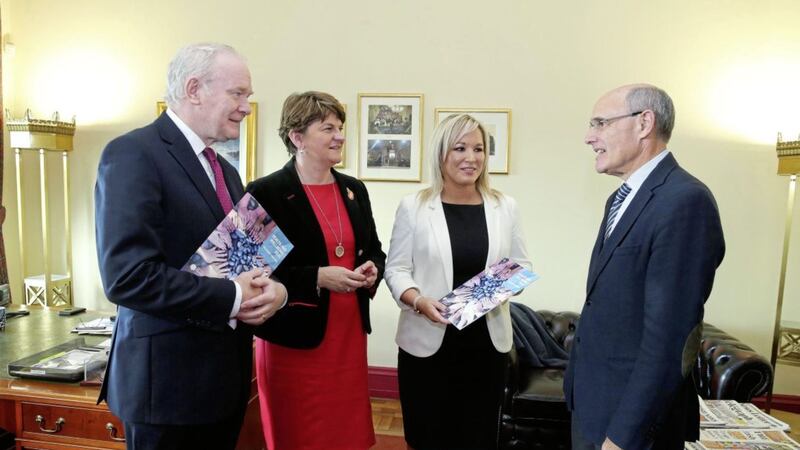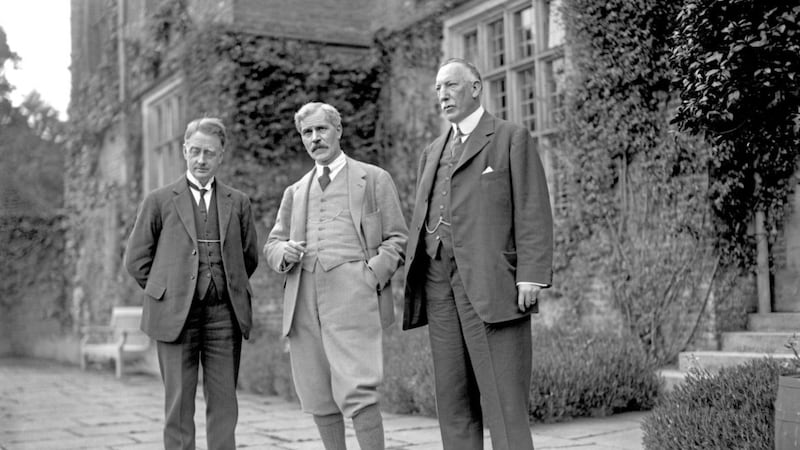IT has become standard practice in politics and activism to attach a frightening death toll to your cause.
You may recall persistent efforts over the past decade to claim 1,000 people a year in Northern Ireland die due to 'cold housing' (there are no grounds to believe this).
Welfare reform has been repeatedly linked to the mortality rate of those going through assessment processes, as if the processes themselves were fatal.
The UK's entire excess mortality since the financial crash has been blamed on austerity, for which there is no proof whatsoever. On and on the shroud-waving goes.
Yet there is strikingly little interest in the lethality of Northern Ireland's hospital waiting lists, now by far the worst in the UK.
One person in seven here is waiting for a first appointment with a consultant, one third of them for over a year. Figures dwarf those in Britain and have risen by half since devolution collapsed.
The NHS is extremely coy about how many people die on waiting lists. Precise figures would be impossible to collect, would vary enormously between treatments and would struggle to distinguish between the preventable, the premature and the unrelated.
Still, it should not be beyond the wit of the country's largest bureaucracy to produce estimates.
The NHS actively tracks the composition of its waiting lists by age, race, gender, ethnicity, sexuality, religion and disability. It is absurd that it offers no breakdown of who is alive or dead.
With 100,000 people added to lengthy lists in Northern Ireland over the past three years, the preventable and premature death toll seems certain to be in the thousands.
Incredibly, to the extent Stormont's absence is responsible, it may have caused more fatalities than the Troubles in one tenth the time.
Perhaps all that needs to be known has been said by health charity the Nuffield Trust, which reckons Northern Ireland's "shocking" and "unacceptable" waiting lists must be causing unnecessary deaths.
This raises an unusual question in our politics: where is the outrage? Compare it to the fascination with culture war issues or the paralysing deadlock over whose feelings might be hurt by shipping paperwork.
One person in seven here is waiting for a first appointment with a consultant, one third of them for over a year. Figures dwarf those in Britain and have risen by half since devolution collapsed
Reforms required to fix the health service have been known and long-fingered for decades.
The first report calling for fewer, larger hospitals was produced before the Good Friday Agreement.
Stormont could be seen as having held progress up: trying to downgrade a local hospital will cause outrage. So this is admittedly not a black and white issue of political accountability, or one where a straightforward public reaction can always be expected.
However, the crisis has reached a point where we should be hearing urgent demands for action, at least on the scale of pressure over welfare reform, which is no less fuzzy in how it relates to devolution and party politics.
UUP peer Lord Reg Empey launched a private member's bill in Westminster last week to return health powers to the Northern Ireland Office pending restoration of Stormont, so that waiting lists can be tackled and decisions taken on reform.
This has met a general shrug. Such a bill normally has scant hope of success without government support and the government is highly resistant to meddling in devolved issues or doing anything that might look like a jump towards direct rule.
Yet exactly the same was true of the bills that have just brought in abortion and same-sex marriage.
They succeeded through a combination of urgency, interest and frustration from politicians, campaigners and the press.
Abortion was constantly stressed as a matter of life and death - a view common to both sides of the argument.
Should our waiting lists not merit the same attention?
The only good argument against Lord Empey's bill is that civil servants should in theory be able to clear waiting lists and deliver reform on administrative autopilot.
Just before Stormont fell, the executive signed off a 10-year reform programme based on the 2016 Bengoa Report, leaving officials with an extant policy. Waiting list initiatives are within the remit of health trusts and have continued in Stormont's absence.
All that needs to be added is money - £1 billion to clear the patient backlog by the latest estimate - and Stormont budgets slipped into direct rule two years ago.
But why would London give us more cash for a problem we clearly do not prioritise ourselves?









